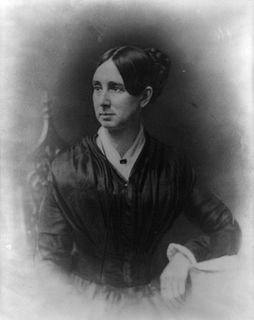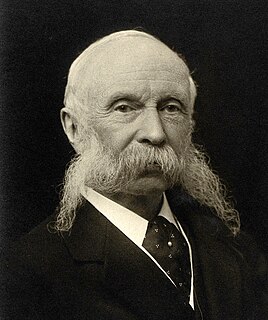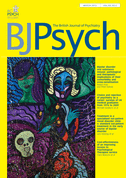Involuntary commitment, civil commitment, involuntary hospitalization or involuntary hospitalisation, is a legal process through which an individual who is deemed by a qualified agent to have symptoms of severe mental disorder is detained in a psychiatric hospital (inpatient) where they can be treated involuntarily. This treatment may involve the administration of psychoactive drugs, including involuntary administration. In many jurisdictions, people diagnosed with mental health disorders can also be forced to undergo treatment while in the community; this is sometimes referred to as outpatient commitment and shares legal processes with commitment.

Dorothea Lynde Dix was an American advocate on behalf of the indigent mentally ill who, through a vigorous and sustained program of lobbying state legislatures and the United States Congress, created the first generation of American mental asylums. During the Civil War, she served as a Superintendent of Army Nurses.

Daniel Hack Tuke was an English physician and expert on mental illness.
Peter Roger Breggin is an American psychiatrist and critic of shock treatment and psychiatric medication and Covid-19 response. In his books, he advocates replacing psychiatry's use of drugs and electroconvulsive therapy with psychotherapy, education, empathy, love, and broader human services.

Henry Maudsley FRCP was a pioneering English psychiatrist, commemorated in the Maudsley Hospital in London and in the annual Maudsley Lecture of the Royal College of Psychiatrists.
Lise Van Susteren is an American psychiatrist, commentator, author and environmental activist.

Sir James Crichton-Browne MD FRS FRSE was a leading Scottish psychiatrist, neurologist and eugenicist. He is known for studies on the relationship of mental illness to brain injury and for the development of public health policies in relation to mental health. Crichton-Browne's father was the asylum reformer Dr William A.F. Browne, a prominent member of the Edinburgh Phrenological Society and, from 1838 until 1857, the superintendent of the Crichton Royal at Dumfries where Crichton-Browne spent much of his childhood.
Germán Elías Berríos FMedSci, FRCPsych is a professor of Psychiatry at Cambridge University in the United Kingdom.
Psychiatry is the medical specialty devoted to the diagnosis, prevention, and treatment of mental disorders. These include various maladaptations related to mood, behaviour, cognition, and perceptions. See glossary of psychiatry.

The lunatic asylum was an early precursor of the modern psychiatric hospital.

The National Collaborating Centre for Mental Health (NCCMH) is a collaboration between the Royal College of Psychiatrists and the Centre for Outcomes Research and Effectiveness at University College London (UCL). The NCCMH aims to promote the role of evidence synthesis in making informed judgments about healthcare policy. The NCCMH has a history of developing guidelines, conducting systematic reviews and developing implementation guidance for commissioners and service providers. Formed in 2001, on 1 April 2016 a new guideline development centre, the National Guideline Alliance, based at the Royal College of Obstetricians and Gynaecologists took over the clinical guideline programme that had been run by NCCMH.

St. Brendan's Hospital was a psychiatric facility located in the north Dublin suburb of Grangegorman. It formed part of the mental health services of Dublin North East with its catchment area being North West Dublin. It is now the site of a modern mental health facility known as the "Phoenix Care Centre". Since the official opening of the Richmond Lunatic Asylum in 1815 the Grangegorman site has continuously provided institutional facilities for the reception of the mentally ill until the present day. As such the Phoenix Care Centre represents the continuation of the oldest public psychiatric facility in Ireland.

History of Psychiatry is a peer-reviewed academic journal covering psychiatry. It is published quarterly by SAGE Publications. The journal's Editor-in-chief is Professor G. E. Berrios.

Adaptive mentalization-based integrative treatment (AMBIT) is a novel adaptation of the theory of mentalization and practices of mentalization-based treatment to address the needs of chaotic, complex and multiply comorbid youth, via team-based multimodal practices.

Charles Arthur Mercier was a British psychiatrist and leading expert on forensic psychiatry and insanity.

Sir Graham Thornicroft is a British psychiatrist, researcher and professor of community psychiatry at the Centre for Global Mental Health and Centre for Implementation Science at King's College London. He is best known for his work on community mental health services, stigma and discrimination, and global mental health. He has published 30 books, and has written over 500 peer-reviewed scientific papers. Thornicroft was made a knight bachelor in the 2017 Queen's Birthday Honours for services to mental health.
BJPsych Bulletin is a bimonthly peer-reviewed open access medical journal covering psychiatry, especially issues relevant to the clinical practice of psychiatrists. It was established in 1977 as the Bulletin of the Royal College of Psychiatrists, and it was renamed the Psychiatric Bulletin in 1988. In 2010, it was renamed The Psychiatrist, and was published as The Psychiatric Bulletin during 2014 before acquiring its current title in 2015. It is published by Cambridge University Press on behalf of the Royal College of Psychiatrists, which owns the journal. The editor-in-chief is Norman Poole.

Mental healthcare in India is a right secured to every person in the country by law. Indian mental health legislation, as per a 2017 study, meets 68% (119/175) of the World Health Organization (WHO) standards laid down in the WHO Checklist of Mental Health Legislation. However, human resources and expertise in the field of mental health in India is significantly low when compared to the population of the country. The allocation of the national healthcare budget to mental health is also low, standing at 0.16%. India's mental health policy was released in 2014.












